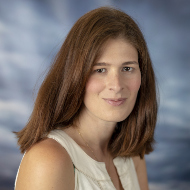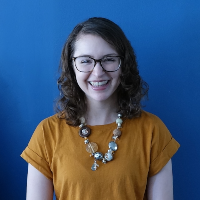Climate Change Summit is a 90-minute town hall-style game where players work together to solve a local climate issue. Our 2019 topic—dam renovation—divides players into characters representing six stakeholder groups, then helps them review data, discuss priorities, and make the best possible decision about what to do with the town’s century-old dam. Players can opt to leave the failing dam as it is, tear it down, restore it to its former glory, or remodel it to be environmentally sustainable.
Equipped with over 40 pieces of data and supported by a small army of trained facilitators, players develop not only a deeper understanding of the role water resources play in climate change preparation but also a model for how to use evidence to evaluate complex situations.
After a test at the Bay Area Science Festival, Climate Change Summit: Dam Renovation moved to Iowa City, Iowa. NCSE Graduate Student Outreach Fellows Rachel Larsen and Christie Vogler worked with a Contemporary Environmental Issues class at the University of Iowa to dive into concerns about the building of dams by playing the game.



